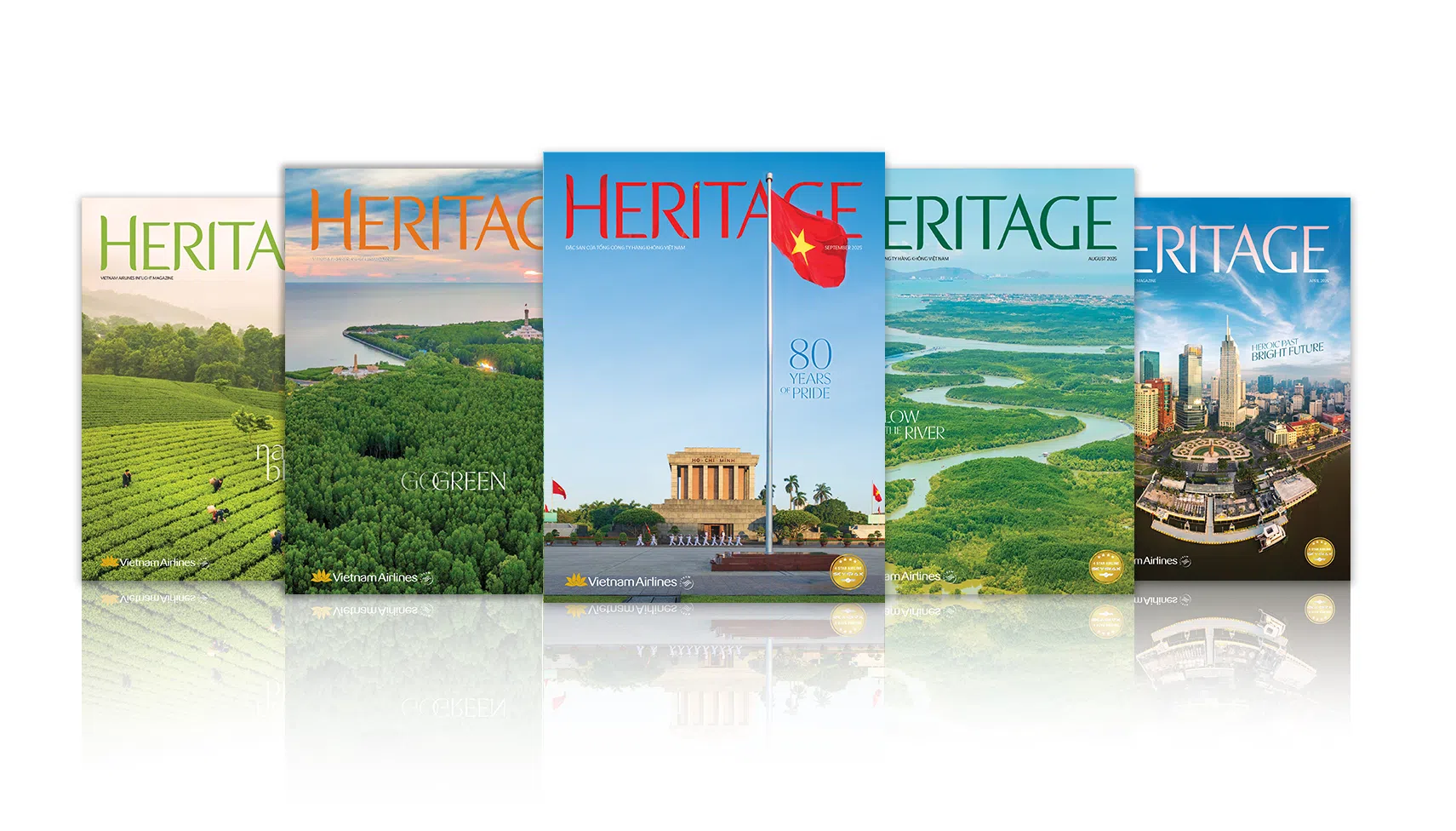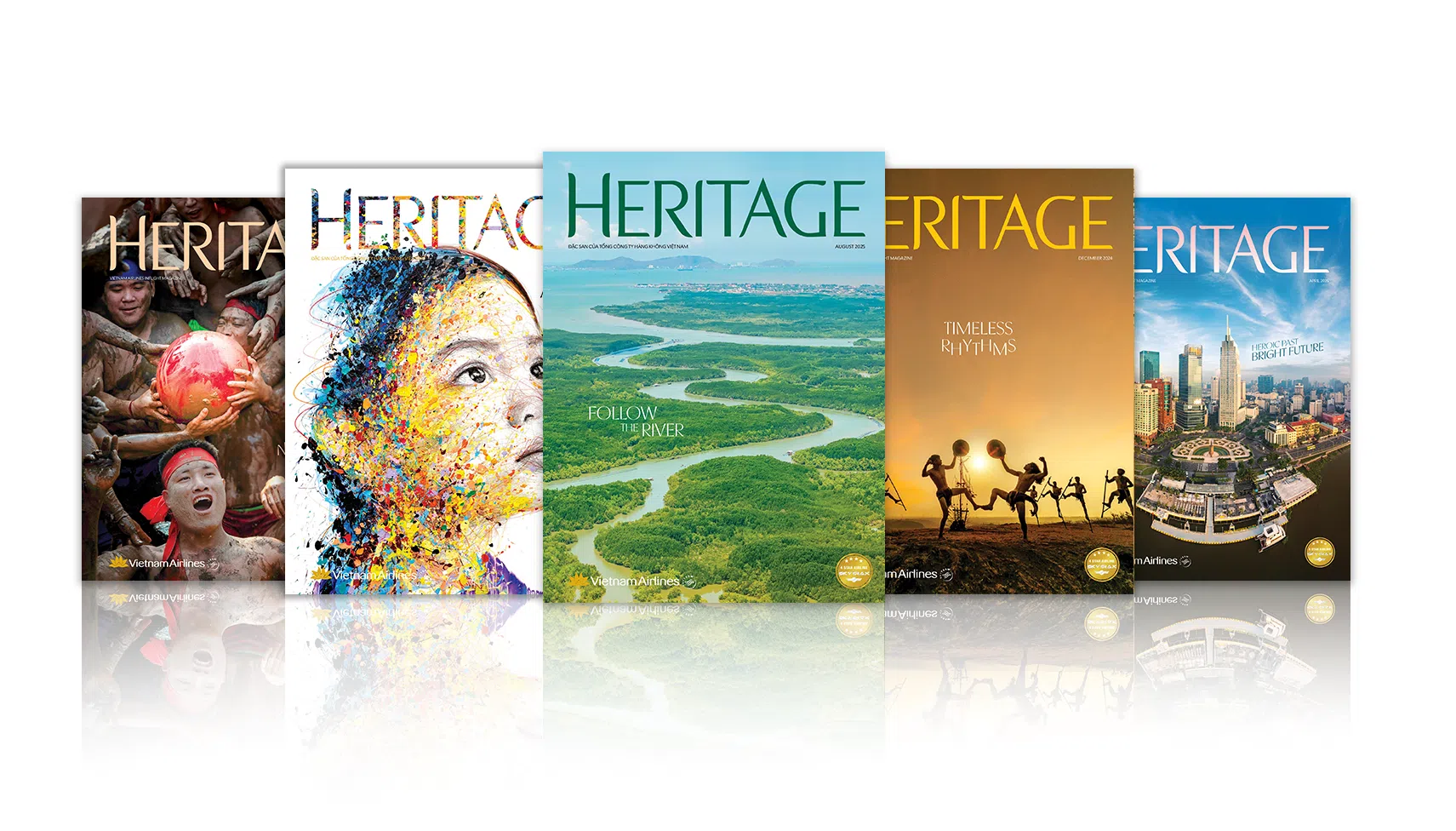Nam Hoa
Northwest Vietnam is famous for its steep terraced rice fields, which stretch across rugged mountainsides like beautiful landscape paintings. Amidst these high mountain ranges, four large valleys formed, creating expansive fields as far as the eye can see. Likened to the Northwest’s four major rice granaries, the valleys are Muong Thanh (Dien Bien province), Muong Lo (Yen Bai province), Muong Than (Lai Chau province), and Muong Tac (Son La province). Based on their size, locals refer to these valleys as: “First Thanh, second Lo, third Than, fourth Tac.”

Preparing to land at Dien Bien Phu Airport, my large Vietnam Airlines plane slows, revealing a corner of the Muong Thanh Valley. My eyes are glued to the airplane’s window, captivated by the beautiful scenery of golden rice fields ripe for the harvest intermingled with the light brown patches of harvested fields, with only rice stubble, surrounded by villages at the foot of mountain ranges.
Ai lên Điện Biên cùng em sánh đôi
Đồi nương xanh thắm vàng ươm lúa ruộng
(Who will go to Dien Bien with me
The hills lush green, ripe golden rice fields)
The gentle melody of the song “Lời mời Điện Biên” (Invitation from Dien Bien) by composer Nguyen Tai Tue echoed in my mind as we leisurely rode our motorbikes on National Highway 279 from the center of Dien Bien Phu city to the outskirts, heading toward the Tay Trang border gate. The road was like a silk ribbon dividing the Muong Thanh fields, stretching along the Nam Rom River amidst the Dien Bien Basin. Among the rice granaries of the Northwest, Muong Thanh is the largest. It is also known by another name, Muong Then, meaning “Heavenly Land” in the language of the local Thai people. This name is apt, as the flat valley, over 20km long and averaging about 7km wide, is surrounded by high and long mountain ranges. The Nam Rom River has enriched the valley’s soil with alluvial deposits for thousands of years to create a vast rice granary – a giant food storehouse for the people who live here.
As evening cooled the vast golden fields, the lively voices and laughter of farmers harvesting rice filled the air. Here and there, on patches of already harvested fields, small fires were burning the rice stubble, sending up plumes of smoke that spread and gradually faded into the thin mist, slowly wrapping around the green mountain slopes. All of this created a peaceful and dreamily beautiful scene. The vast Muong Thanh Valley, enriched by alluvial deposits, boasts fertile land. The rice here is unique: the grains are small and uniform, with a natural fragrance. When cooked, the rice is white, sticky, and sweet with a rich and delicious taste. Locals in the Heavenly Land liken the grains of rice to pearls from the heavens.

The sweet scent of the rice stalks mixed with the distinctive smell of burning straw was so enticing that we couldn’t resist the urge to turn off the main road and venture deep into the fields to experience the harvest atmosphere among the local people. Many small concrete paths branched off the main road, cutting across the fields toward lush green villages at the foot of the mountains. The roadsides were adorned with wild daisies (Bidens pilosas), their white petals and yellow stamens fluttering in the wind.
Here and there, combine harvesters appeared in the fields, with neat rows of rice bags lined up. Bundles of rice were laid down on the plots and carried along the embankments to collection points. On the straight, narrow concrete road, robust farmers were seen smiling and chatting as they skillfully lifted bundles of rice onto their trucks with poles. Their movements were practiced, precise, and beautiful, as if they were performing a dance in the late afternoon amidst the vast golden fields.
The distant mountains gradually blurred into the evening mist. Water buffaloes leisurely grazed while small trucks and agricultural vehicles laden with “heaven’s pearls” bustled back toward the villages at the foot of the lush green mountains. We left the fields of the Heavenly Land, filling our lungs with the fragrant country air. The passionate lyrics of the song “Lời mời Điện Biên” continued to echo in my mind:
Ai qua Điện Biên cùng em sánh đôi
Gạo thơm cơm trắng cùng em đón mời
Mùa về mùa về, Mùa về mùa về, gọi chàng trai tới
(Who will pass through Dien Bien with me
Fragrant white rice welcomes you to taste it
The season comes, the season comes, calling the young men to come here)










